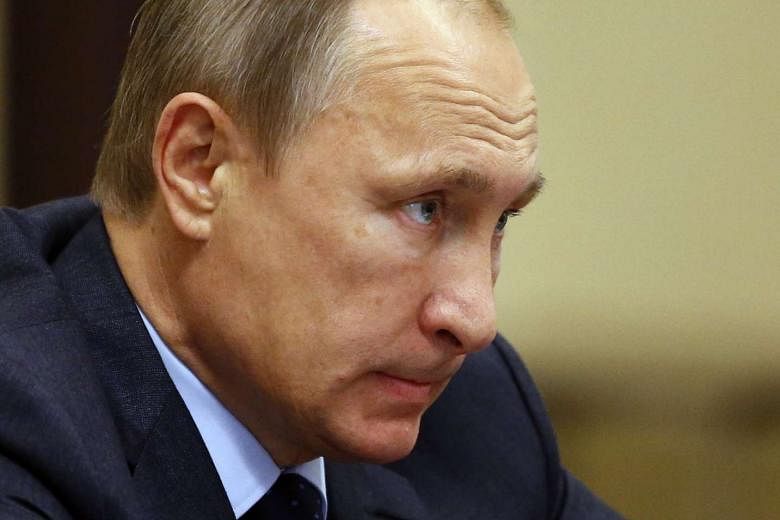MOSCOW (AFP) - Russia on Friday (Oct 30) opened a major new museum on the horrors of the Soviet gulag labour camp system but President Vladimir Putin blanked the day commemorating victims of state terror.
The hi-tech state-run museum tracing the history of the brutal camp system will be a rare memorial to some of the millions who suffered under Communist rule.
The authorities under Putin have often sought to play down the crimes of the Soviet regime, focusing on Communist supremo Joseph Stalin's role in defeating Nazism and industrialising the country rather than the estimated 20 million victims of his rule.
The four-storey exhibition in central Moscow - the largest ever museum on the gulag in Russia - includes documents signed by Stalin sending thousands to camps.
It allows visitors to watch nearly 100 newly recorded interviews with descendants of victims.
"In the USSR, the terror was denied for a long time even at a family level, forgetting was the only way to survive" said Lyudmila Sadovnikova, who created the audiovisual displays.
"We cannot deny history or cover up how it really was."
The opening of the museum in Moscow comes despite others in Russia dedicated to the issue facing a tough time.
In March, rights activists running Russia's only museum in a former camp in Siberia were ousted from the site and the local government took over, reportedly watering down the focus on the evils of the labour camps.
Russia on Friday was holding isolated events to commemorate millions of victims of Stalin's terror, although Putin, as in past years, was not set to mark the day.
Putin's participation in commemorative events "is not planned," his spokesman Dmitry Peskov told journalists.
The day of commemoration was officially established in 1991 as researchers and rights activists pressed on with the painful process of uncovering the crimes of the Stalin era.
Putin this month backed a plan to put up a public monument in Moscow to the victims, calling the repression "one of the most bitter, difficult pages of Russian history."
Yet, under the Kremlin strongman, Russia has stressed its role as a superpower and heir to the Soviet Union and discussion of Stalin's repressions has been sidelined.
BLURRED THE LINE
In August in a new policy statement, Russia acknowledged that rehabilitation of the victims "is not concluded" and there is still no national monument to them.
"Russia cannot fully become a government based on the rule of law... without commemorating the many millions of its citizens who became victims of political repressions," said the statement signed by Prime Minister Dmitry Medvedev.
Putin, a former KGB agent, has several times condemned the repression but has also praised Stalin's role in World War II.
Authorities have allowed several Stalin statues to reappear across the country, erected with private donations.
Putin has also condemned so-called "distortions of history" in films and school textbooks covering the Soviet role in World War II.
"State propaganda by declaring unpatriotic any criticism of the actions of the Soviet leadership in the WWII years has blurred the line of what is acceptable," wrote Vedomosti business daily in an editorial.
Rights groups including Memorial, set up to rehabilitate victims of Stalin repression, have been branded "foreign agents" for receiving donations from abroad under a law signed by Putin.
A survey by independent pollster Levada in March found 39 per cent of Russians liked, admired or respected Stalin. Thirty percent said they were "indifferent" to him.

